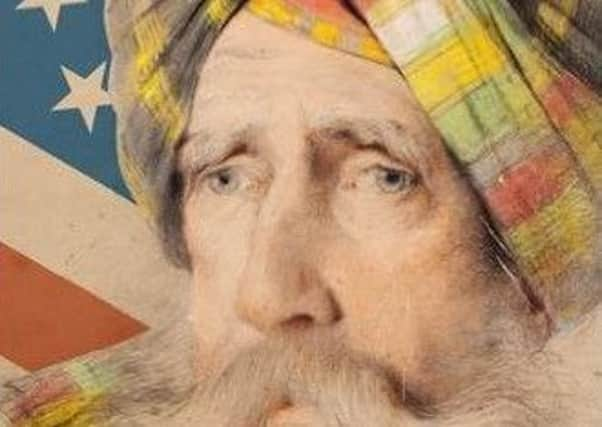Book review: The Tartan Turban: In Search of Alexander Gardner, by John Keay


He spoke with an Irish accent and may have been educated by the Jesuits in Ireland. He may have
served in the Royal Navy, or perhaps the American one; or perhaps neither.
Advertisement
Hide AdHe was probably in his thirties when he turned up in India. He spent years wandering and fighting in what is now north-west Pakistan and Afghanistan. His sojourn in Kafiristan, where the fair-headed light-skinned people were thought by some to be descendants of Alexander the Great’s Macedonian soldiers,
may have given Kipling the idea for his great story The Man Who Would Be King. But then again it may not have.
Some think he spent only two years as an adventurer and soldier of fortune in this wild country; others, 12. Keay inclines to the latter. Some think the accounts of his travels there, of which he spoke freely in old age, drawing, apparently on written reminiscences, wholly spurious.
Keay shows, in fascinating detail, that they were at worst embroidered truth.
At some point he converted, prudently, to Islam, though he was never devout. He had several Indian wives, and a daughter, Helena, whose efforts to find his will and reputed fortune, provide Keay with some firm – or fairly firm – evidence.
What is not in dispute is that he served for many years as an artillery officer, with the rank of colonel, in the Army of the Sikh Empire, in its last years. He was seemingly a favourite of the great Ranjit Singh, and caught up in the murderous succession struggle which followed his death. Those today who deplore the brutality and mendacity with which the East India Company acquired a British empire in India should read Keay’s gripping account of the years after Ranjit Singh’s death; they might realise just how ruthless and horrible native Indian politics themselves were.
Advertisement
Hide AdGardner himself performed one vile mutilation on a Brahmin politician (when the Hindu soldiers refused to do it) and was at least complicit in some ghastly murders. One shouldn’t be surprised. His adventurous years on the north-west frontier and in Afghanistan had not given him any tender respect for human life.
Nevertheless he seems to have been likeable, and possessed of charm as well as undoubted courage. He had survived much, been horribly wounded many times; as the result of one sword-gash in his neck he had to employ a sort of forceps to enable him to eat and drink. He evidently had charm and the ability to win friends and inspire confidence; he wouldn’t have come through otherwise. In old age he was a genial and tireless raconteur. Despite his conversion to Islam and his dislike of Christian missionaries, he was buried in a Christian cemetery.
Advertisement
Hide AdWhat of the tartan which he habitually wore in Lahore? He doesn’t seem to have spoken of himself as a Scot. Nevertheless his turban, jacket and trews were in the tartan of the 79th Cameron Highlanders, though he had no connection with the regiment. Maybe he just liked the colours.
John Keay has evidently formed a suitably sceptical affection for the old rogue. His research has been prodigious, and he never pretends to certainty where none is possible. Nevertheless, he is clear that the Colonel’s version of his adventures is more reliable than his several detractors have believed. Though he often pauses to analyse the evidence, the narrative never flags. It’s a masterly account of an extraordinary life in an extraordinary time and place; utterly entrancing.
*The Tartan Turban: In Search of Alexander Gardner, by John Keay, Kashi House, 324pp, £25